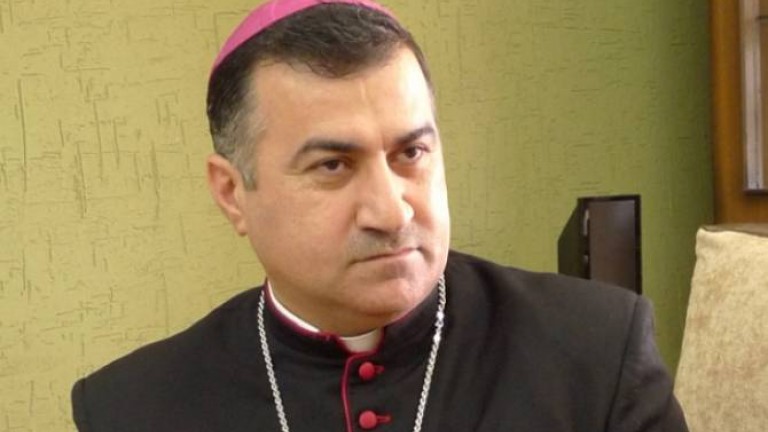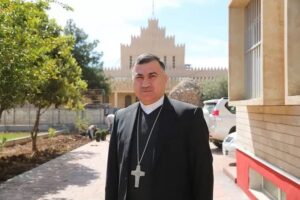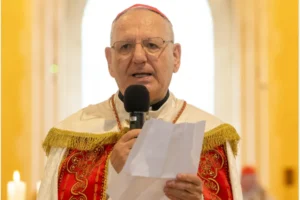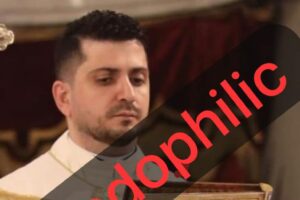Patriarch Sako and the Republican Decree
by Archbishop Bashar WARDA, Chaldean Archbishop of Erbil, Iraq
What is at issue?
The current President of the Republic of Iraq has chosen to revoke a Republican Decree previously put in place by former President Jalal Talabani. This ministerial decree had installed Patriarch Sako as the Patriarch and the leader of the Chaldean Church. The justification for the revocation by the President was that the decree, at its time of issuance, did not have a constitutional foundation as such decrees are meant for state employees appointed by the Iraqi government. As such, the original decree lacked the necessary legal foundation at the time of issuance, and the President asserted that his revocation of the decree was therefore corrective in nature. The reality is that the Patriarch is neither government-appointed nor a state employee. Meanwhile, the churches continue to have autonomy and the legal authority to independently manage their endowments and affairs as per Article 43 of the Iraqi constitution, which pre-dates the decree at issue and continues in full force.
What led to the President’s decision concerning the decree?
A few months ago, the Patriarch of the Assyrian Church and the Patriarch of the Old Assyrian Church had requested a similar decree from the President, which was explicitly denied. The President clarified that these types of decrees do not have a constitutional basis as the church elects its own individual leaders, not the government. The Presidency of the Republic further clarified a few days ago that the revocation of such decrees does not impact the legal status of any church leader in any way.
The Office of the Presidency clarified in a subsequent statement that all presidential decrees usually apply to state employees, whereas the heads of churches are elected by the bishops of their churches, ratified by the Vatican, and are not government employees. The church is independent of the state and manages its endowments and religious institutions freely under the Iraqi constitution. The endowment custodian is the ecclesiastical president.
What is the historical context of these decrees?
These decrees have their origins in early Islamic periods, where the caliph would traditionally issue an edict mandating the patriarch to oversee the personal status of Christianity, in accordance with the church’s approved laws and customs. This was coupled with the responsibility of collecting tributes for the treasury as the caliph’s representative. However, these practices often resulted in infringements on the rights of Christians, with caliphs sometimes issuing decrees arbitrarily.
These practices were carried over by Muslim caliphs and later embraced by the Ottoman Empire in their “Millah” system. In this system, the Ottoman sultan regarded the patriarch as accountable for the Christian denomination, issuing a decree that ensured respect for the Patriarch and expanded his authority to include the religious heads under him. This decree also conferred temporal power over the Christian population to the Patriarch, which, over time, posed significant problems for the Patriarch, the Church, and their followers alike. The Patriarch was also held responsible for his follower’s actions, facing severe accountability for them. It’s important to note that these temporal authorities were primarily administrative rather than political.
I personally see these decrees as a distinct infringement on human rights, as they treated non-Muslims as dhimmis, obliging them to pay a tax. The Ottomans further embraced this practice, making it a custom that persists to this day. It’s noteworthy that similar decrees were issued to leaders of other religions and sects.
Does the revocation of the decree impact the church’s endowments?
The answer is two-fold. The Iraqi constitution, in Article 14, states that “Iraqis are equal before the law, without discrimination due to gender, race, nationality, origin, color, religion, sect, belief, opinion, or economic or social status.” Furthermore, Article 41 asserts that “Iraqis are free to comply with their personal status in accordance with their religion, sect, beliefs or choices, which will be regulated by law.” In addition, the first part of Article 43 of the Constitution affirms that “adherents of every religion or sect are free to: A. Practice religious rites, including Husayni rites, B. Manage their endowments, affairs, and institutions, which will be regulated by law.”
Therefore, we are free in managing our endowments, and even the Christian Endowment Office cannot interfere or administer the management of endowments, because the law obliges the Office to support and encourage the endowment’s manager, who is the ecclesiastical leader.
How will the church head manage the endowment now?
For good order’s sake, and to remove unnecessary confusion, the Ministry of Justice should issue an authority document for each church head, granting them the power to manage the endowments as per the ecclesiastical laws under the constitution. This aligns with the Iraqi constitution, as we Christians are not required to pay tributes but rather taxes like any other citizen. Similarly, this would affirm that Christians engage with governmental departments like any other Iraqi citizen.
What is the Vatican’s position on this matter?
So far, there has been no official statement or comment from the Vatican on this matter. However, the Chargé d’Affaires at the Vatican embassy in Baghdad met with the President of the Republic, who explained the reasons for the decree withdrawal decision, and that the withdrawal of the decree will not affect the status of Patriarch Sako. The Vatican’s Chargé d’Affaires affirmed that “the administration of Church properties – as prescribed by the Iraqi Constitution- should continue to be exercised freely by the Heads of Churches” and that on a practical level it is the Heads of Churches that should provide representation “in front of Iraqi Tribunals and Government offices” while “the Apostolic Nunicature does comment on whether this is to be ensured by presidential decree or in another suitable way.”
What are your concerns regarding the revocation of the decree?
Personally, I believe the approach to revoking the decree was flawed. The President of the Republic could have convened a meeting with all the church leaders to explain the history of these decrees and his decision to retract them. Instead, the matter was played out in the media, leading the Patriarch to interpret this action as punitive.
Might there be other underlying motives for issuing this decree?
In a recent discussion with a local Iraqi channel, Patriarch Sako implied that the revocation of this decree was requested by the Christian delegates in the House of Representatives, particularly those belonging to the Babylonian bloc. He also pointed out that the decree’s revocation happened to align with the President’s return from an official visit to the Vatican, a visit during which a meeting with the Pope did not occur due to the Pope’s health. Rumors have circulated that it was the Patriarch who cancelled this meeting, a suggestion we completely refute.
With the prevailing political climate in Iraq, all occurrences carry a political subtext. All political groups exploit every chance to induce chaos within the political framework, seeking to win over the public’s support and set themselves against rival political parties. Hence, it is prudent for the President to handle this situation discreetly, liaise directly with church heads, and thwart political factions from leveraging these situations for their personal political and media gains.
What prompted the Patriarch to leave his base in Baghdad?
In a letter addressed to the President of the Republic, the Patriarch expressed his frustration over the constant summons to the police station, instigated by the Babylon Movement. The Babylon movement has accused the Patriarch of slander and defamation. The Patriarch, in a conference held at his Baghdad headquarters in May 2023, accused the group of corruption, abuse of power, and usurping Christian properties. This led to the members filing lawsuits in Baghdad’s courts against the Patriarch, following which the Patriarch was then compelled to present himself in person to the Police. In response to these recurring summonses, which the Patriarch has viewed as threats against himself and the Church, he has opted to move to Kurdistan.
Is there any chance these existing issues can be resolved?
I doubt that the President will reconsider his decision, especially since he confirmed the legality of the decree withdrawal. As for the cases filed against the Patriarch in the civil courts, they either require reconciliation with the Babylon Movement, leading them to withdraw their complaints, or the continuation of the court process.
How can these circumstances be mitigated? What steps could the Iraqi government take to put Christians at ease?
A visit from the President of the Republic to the Patriarch at his place of residence could serve to reinforce his previous assertions of Iraq’s respect and acknowledgment for Patriarch Sako’s religious, national, and international significance.
In addition, it would be beneficial if the Ministry of Justice quickly issued deeds for the religious endowments to all heads of churches, which would assure everyone that there are no plans for the state to take over these church endowments.
Crucially, it’s of utmost importance to shield these administrative and legal processes from media outlets that are politically funded, as they have often work to agitate the Christian community with unverified rumors and fictitious stories, instigating widespread anxiety.
Are there fears among Christians due to these circumstances?
Certainly, this entire situation perpetuates a climate of fear among some people. Most of these stories come from under the shadow of intentional social media campaigns. The “news” which then results, whether real or fabricated, in turn leads to questions and fears from the people. Personally, I implore the people to remain calm and ask them to think logically about everything they hear, as the divisions in Iraq are always at work trying to arouse fears in people to bring down the other side.
At the same time, Church believers in Iraq hold great respect and appreciation for the priest, the bishop, the Patriarch, and the nun. When our people watch and hear media campaigns which affect the Church, and read articles with inflammatory populist language from writers, it understandably makes the people very anxious and afraid for their fate. Therefore, all parties must use the media responsibly. For my part I try to keep these issues away from media exploitation so that honest resolution might have a chance to take its correct course.
Patriarch Sako and the Republican Decree















